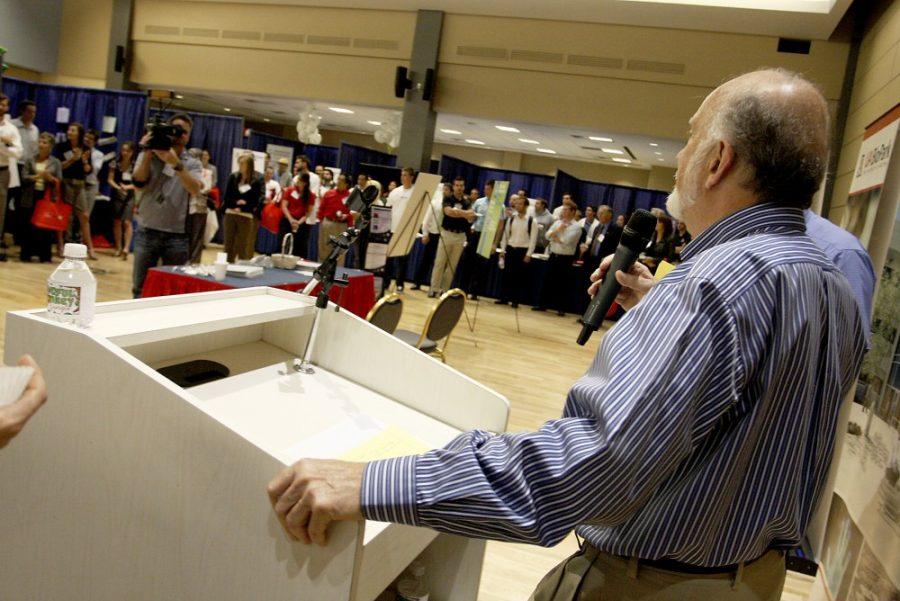In a small meeting room in the Student Union Memorial Center, a UA student and professor wait with reporters and fellow researchers as they anticipate being named innovators of the year during the UA’s annual Innovation Day.
“It’s a really exciting day because of the people we are honoring today,” said Leslie Tolbert, senior vice president for research. “Innovation is what we do every day at the University of Arizona, but this is the one day out of the year where we pay attention to the fact that this is going on across the campus.”
Innovation Day, which took place on Tuesday, included a series of events and showcases sponsored by Arizona-based research organizations that recognized science developments made in the UA community.
Event organizers named Ronald Weinstein, a pathology professor in the College of Medicine and Alexandra Armstrong, a doctoral candidate in veterinary sciences and microbiology, as recipients of the Technology Innovation Award. Winners of the award will not only receive a plaque to commemorate their achievements, but also a prize of $10,000 that can be used for research-related projects.
“It’s a special day and I’m sure we both appreciate being honored,” Weinstein said as he looked at Armstrong, who was sitting across from him at the conference table. “We don’t do our work with the dream of begin honored or even making money from it, we are driven by intellectual curiosity.”
Weinstein has been engaged with a variety of medical projects at the UA since becoming the chief of pathology for the University of Arizona Medical Center in 1990. Since then, Weinstein has made contributions to the cancer research field, created a telemedicine service for Arizona that has treated more than a million patients and co-founded the first robotic telepathology equipment company. In addition, Weinstein has been involved in numerous medical patents and his work has been mentioned in more than 1,000 scientific papers.
“The way I look at is that I am a doctor who happens to be a pathologist,” Weinstein said. “I got in to pathology because I love research, but I think we are pharmacists and doctors who help take care of a broader population.”
Armstrong, the winner of the student award, which includes a $1,000 scholarship, has been at the UA for the last five years and is in her final year as a doctoral candidate. Originally, she came to the UA without knowing what she wanted to research. After working on projects dealing with salmonella, Armstrong began researching the bacteria campylobacter jejuni, which can cause foodborne diseases in humans and is typically found in chickens. Through her research, Armstrong was able to develop a vaccine for chickens to prevent campylobacteriosis, the top foodborne disease worldwide.
After Armstrong finishes her doctoral degree, she plans to continue her research in the food industry in hopes of improving it.
“I am passionate about food safety,” Armstrong said. “I think that food safety is one of the most important features of a developed country and is an important step forward for the rest of the world.”









